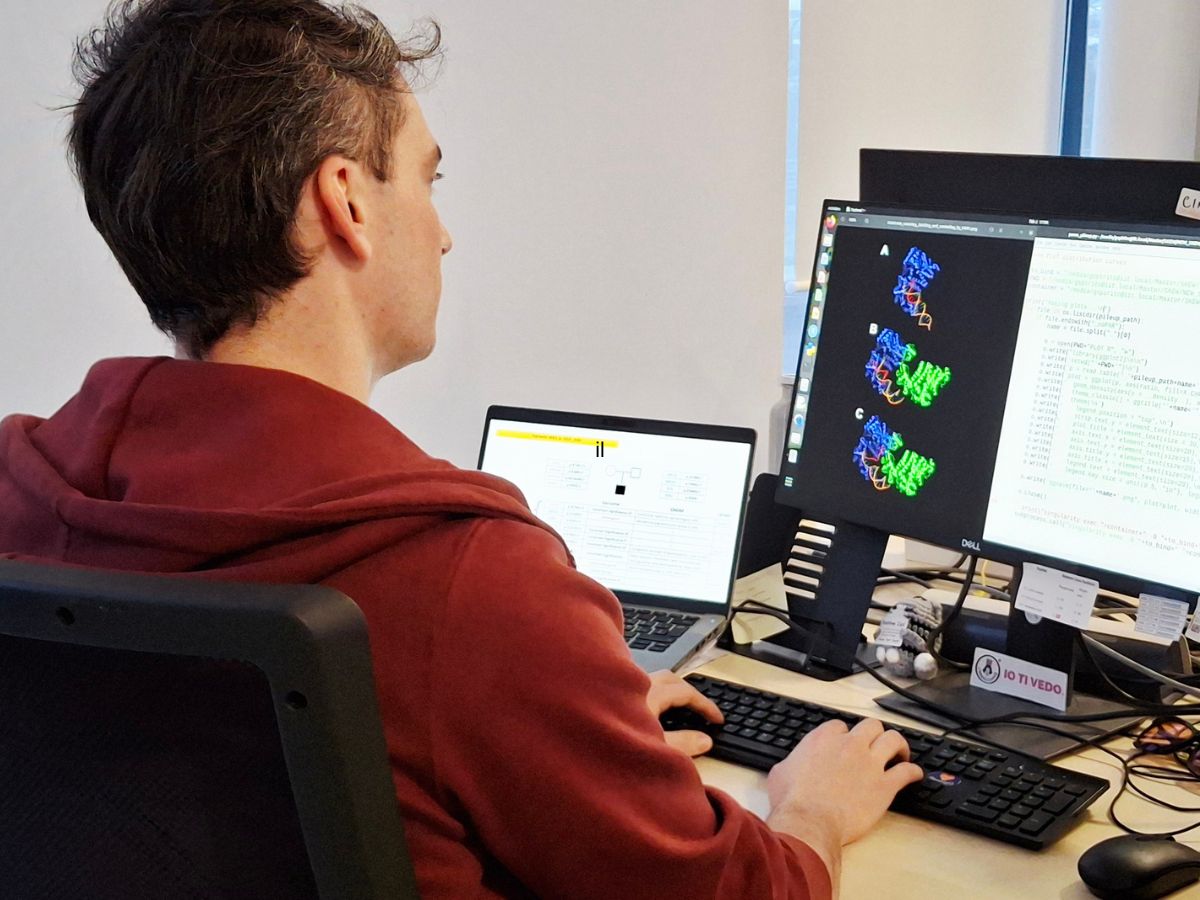IIT will be taking part in the arm prosthesis category, as well as in the leg prosthesis category, where it will be the only Italian competitor. The qualification rounds will take place on Friday 25 October, with the finals on Saturday 26.
The Istituto Italiano di Tecnologia (IIT-Italian Institute of Technology) will be taking part in the Cybathlon Global Edition 2024, the international event organised by the Federal Polytechnic of Zurich, in which research centres from all over the world compete in challenges with their technological innovations in the field of devices for people with physical disabilities.
The formula is the same as for past editions; disabled people will be competing as pilots in a range of disciplines, tackling courses that reproduce daily tasks with the use of the latest inventions in the field of technology, such as robotic prostheses, exoskeletons, new-generation wheelchairs, brain-computer interfaces (BCI), and Functional Electrical Stimulation Bikes. This year will also see the launching of two new categories: Vision Assistance and Assistance Robot. Points are assigned on the basis of the number of tasks completed and the time taken to complete the course.
The event, now in its sixth edition, will be taking place at the SWISS Arena in Kloten (Switzerland), and will see the participation of 76 teams subdivided among the 8 race disciplines identified according to the disability of the pilots and the technology in use. Each team is composed of a pilot and their entourage of researchers acting as coaches, athletic trainers and race mechanics, just like in car racing.
As well as raising awareness among the general public of the needs of those living with disabilities, the aim of the event is to demonstrate the latest state-of-the-art technology developed in this field and to encourage collaboration between research centres.
IIT will be competing in the “Arm prosthesis” category with the Rehab Tech Arm team and the Hannes device, while the “Leg prosthesis” category will see the participation of two different research groups: the Rehab Tech Leg team with the Omnia technology, and the SoftFoot Pro team with the SoftFoot Pro technology.
The race course for the “Arm prosthesis” category is approximately 50 metres in length, and will require the pilots to take part in two rounds involving 10 stations: laying a table, hanging out washing, using domestic tools (a hammer, scissors, etc.), recognising objects through touch alone, carrying weights and creating a pyramid of glasses. Every round will last for a maximum of 8 minutes. Points are assigned on the basis of the number of tasks completed and the time taken.
The pilot for the Rehab Tech Arm team is Chiara Storchi, a researcher at the Istituto Italiano di Tecnologia and user of the Hannes prosthetic hand. Hannes, developed in the joint Rehab Technologies Lab IIT – INAIL, is a class-1 medical device which has already received CE marking and won the Golden Compass for design. The aim is to have it launched on the market in the near future.
This category will see the participation of 18 teams from: Italy (IIT, BionIT Labs1, BionIT Labs2 and Prensilia), Spain, France, Switzerland, Canada, the Netherlands, Germany, China, France and South Africa. The 4 most highly ranked teams will then move on to the finals on Saturday.
The “Leg prosthesis” category will see pilots competing in two rounds on 10 stations requiring activities such as walking along a balance beam while carrying buckets, going up and down stairs while carrying objects, walking on an incline and keeping balance while walking over stones. Every round will last for a maximum of 6 minutes.
The pilot for the Rehab Tech Leg team is Andrea Modica, who will be using Omnia, a prototype prosthetic leg, comprising a knee and ankle, and developed in the Rehab Technologies Lab IIT – INAIL. The prosthetic knee contains a combination of hydraulic and electrical technology to provide fluid movement while also offering active assistance when needed. The prosthetic ankle is composed of a carbon foot combined with an innovative screw mechanism that helps the patient in the initial step phase and avoids tripping during the flight phase.
The pilot for the SoftFoot Pro team is Flavio Gaggero, who will be competing with SoftFoot Pro, the artificial foot presented in July at the Genoa G7 Health technical event, developed by the IIT SoftBots research unit and characterised by a unique design that is able to change shape and autonomously adapt to obstacles and varying types of surface, fostering a natural way of walking and improving the stability of the user, even on terrains that are not perfectly level.
This category will see the participation of 13 teams from: Italy (represented exclusively by IIT), India, Belgium, Chile, Poland, Taiwan, Switzerland, South Africa, Iceland and the United Kingdom. The 4 most highly ranked teams will then move on to the finals on Saturday.






